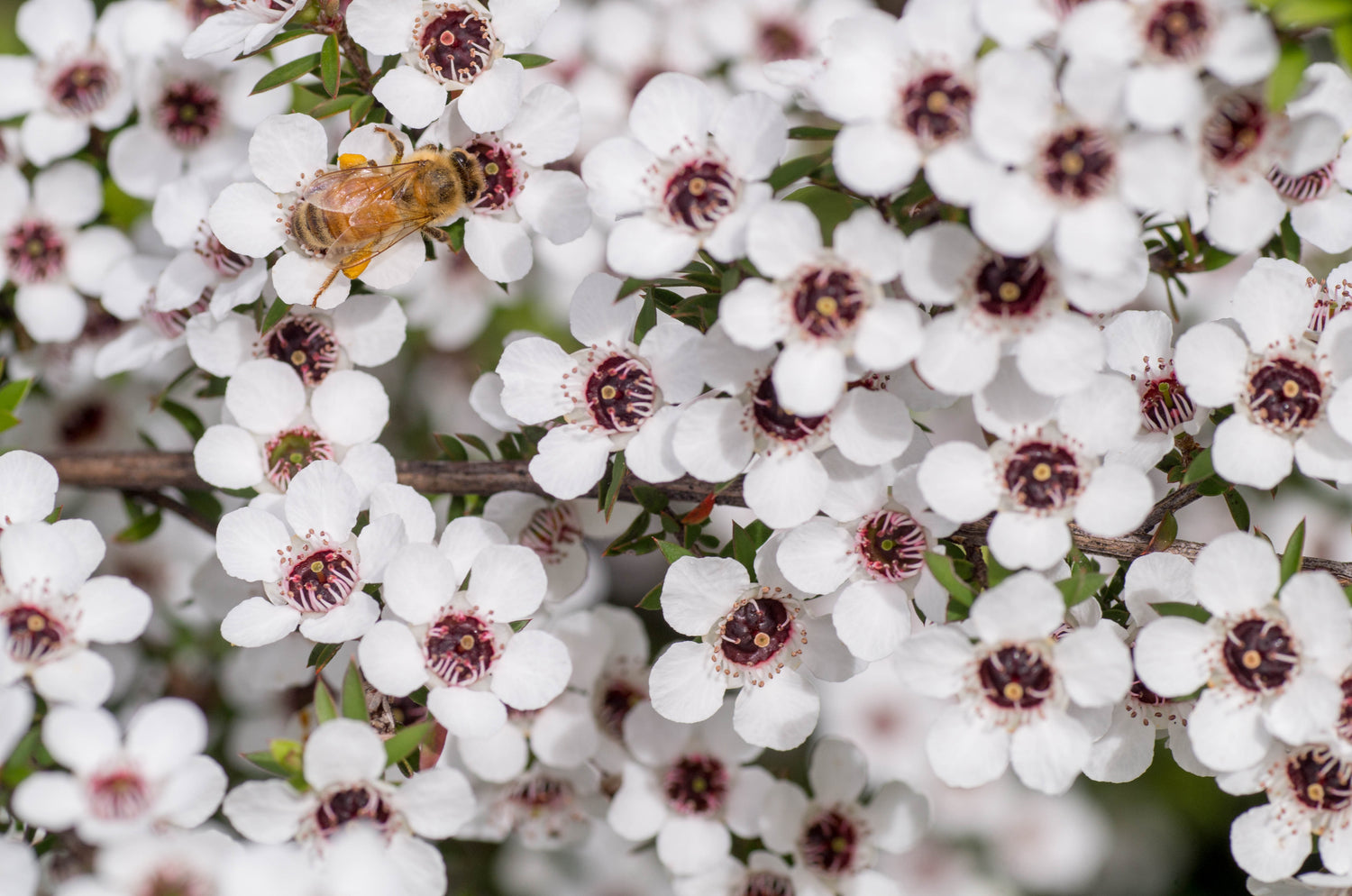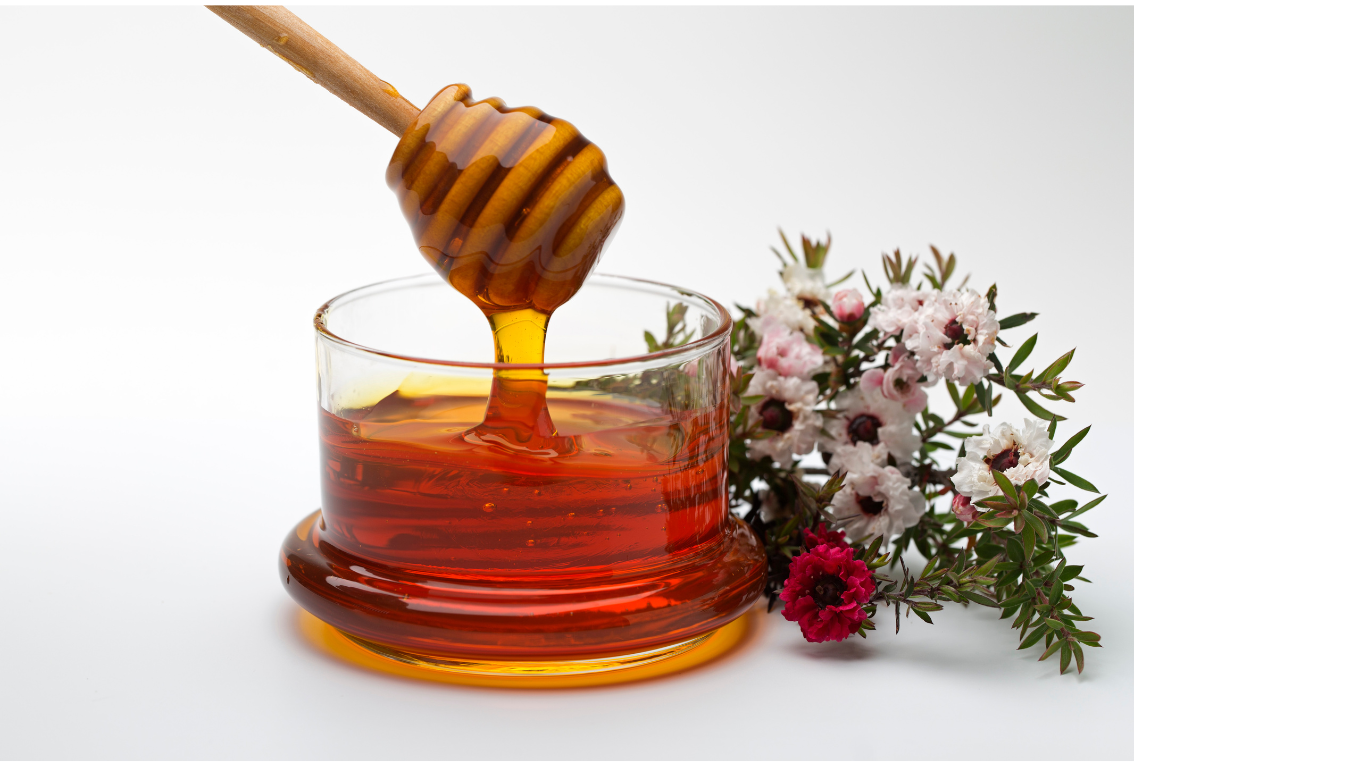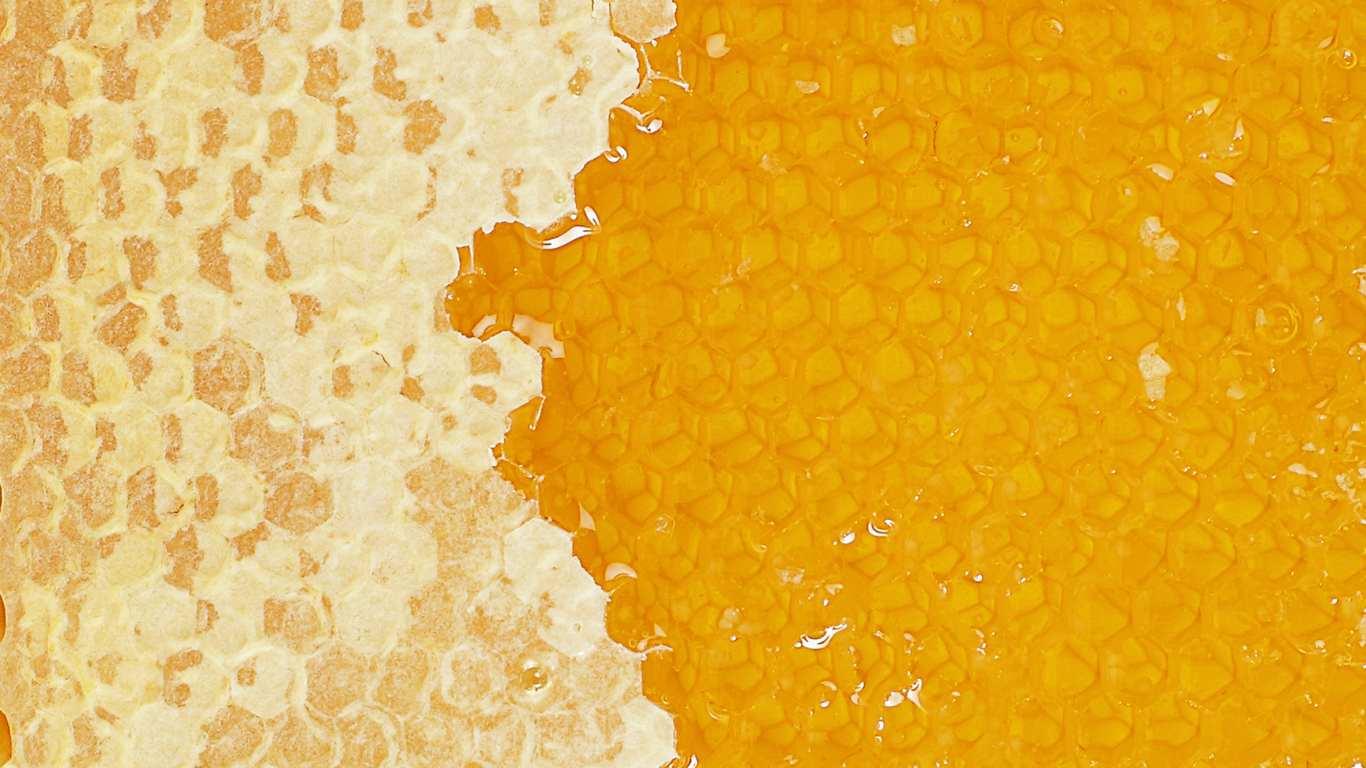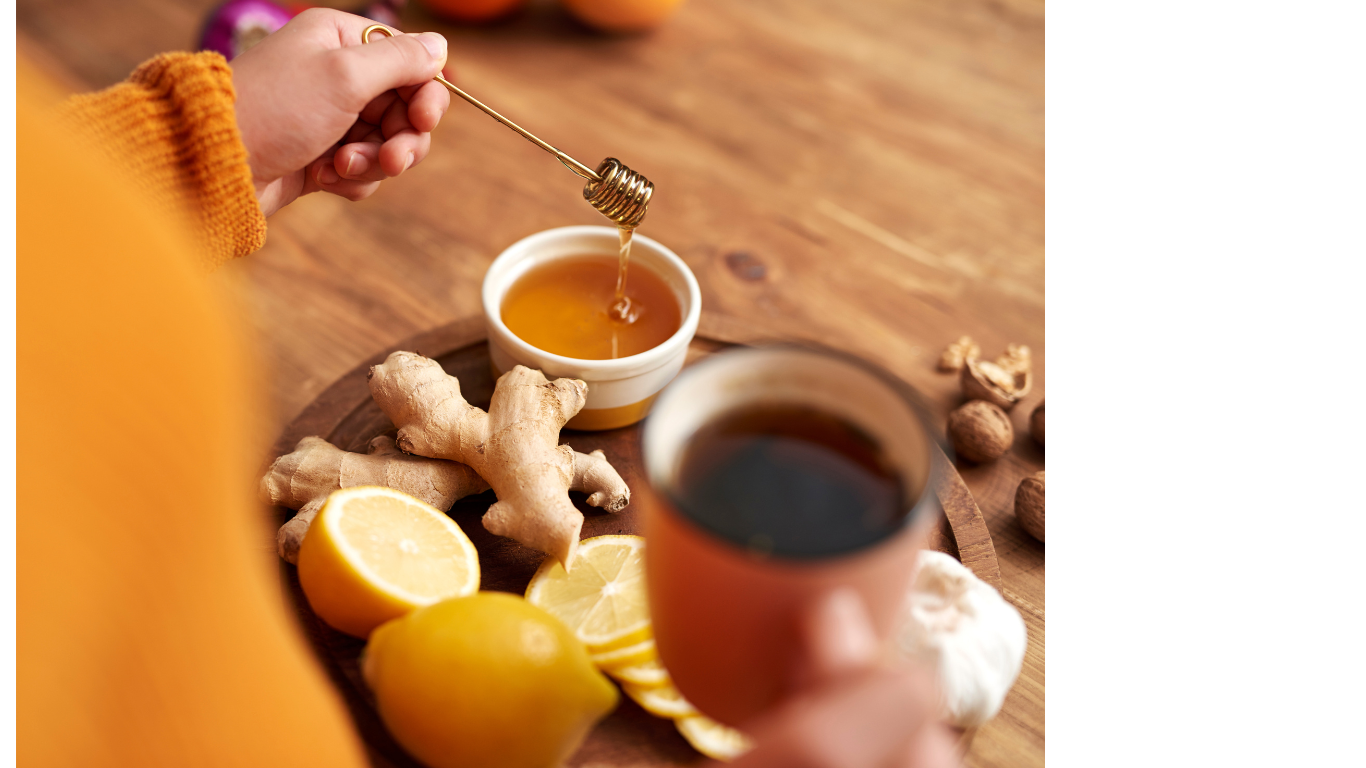
What is Manuka Honey?
Manuka honey is a honey native to New Zealand. It is thicker than traditional honey, resembles golden molasses and tastes similar to rich caramel with a bittersweet finish and a smooth finish. It’s produced by bees that pollinate the flower Leptospermum scoparium (L.scoparium), commonly known as the Manuka bush. The Manuka bush can be found across New Zealand.
Manuka honey’s antibacterial properties are what set it apart from traditional honey. It contains methylglyoxal as an active ingredient, which is what is responsible for antibacterial effects. Manuka honey is also known to offer antiviral, anti-inflammatory, and antioxidant benefits which have been documented and subject to numerous scientific studies.
Some traditional uses of Manuka honey include topical application for wound healing, drinking of one tablespoon either directly or with a cup of warm water and lemon to soothe a sore throat and to improve digestive issues.
There are approximately only 12,000 to 13,000 tonnes of Manuka produced in NZ each year from the 720,000 hives. Given its scarcity, there have been many cases of sugar-water mixtures and non-Manuka honeys being passed off as real Manuka so it is important to know where your Manuka Honey is sourced from.

How Can Honey Be Antibacterial?
Honey has been used since ancient times to treat multiple conditions. It wasn't until the late 19th century that researchers discovered that honey has natural antibacterial qualities. Undiluted honey has the ability to stop the growth of bacteria completely because of the high content of sugar. High sugar concentration of honey exerts osmotic pressure on bacterial cells which causes transport of water out of bacterial cells through osmosis.
Honey protects the body against damage caused by bacteria. Some honeys also boost production of special cells that can repair tissue damaged by infection. Manuka honey has an anti-inflammatory action that can help ease pain and inflammation.
However, not all honey is the same. The antibacterial quality of honey depends on the type of honey as well as when and how it's harvested. Some kinds (including Manuka Honey) may be 100 times more potent than others.

What is the MGO rating of Manuka Honey?
Hydrogen peroxide gives most honey its antibiotic quality. But some types, including Manuka honey, also have unique antibacterial qualities.
One of the major antibacterial components of Manuka honey is a compound called methylglyoxal (MGO). MGO comes from the conversion of another compound in Manuka honey known as dihydroxyacetone (DHA), a high concentration of which is found in the nectar of Manuka flowers. MGO ratings that you see on labels mean how much methylglyoxal is present in 1 kg of the product. For example, a rating of MGO 550+ means there are 550 mg of it in 1 kg of honey.
The higher the concentration of MGO, the stronger the antibacterial effect. For daily use, an MGO of 83+ is recommended to enhance energy and wellness. For higher antibacterial applications, an MGO of 263+ can be used to treat skincare and other health conditions. An MGO of 400+ is a great aid for digestive health.

Top 10 Health Benefits of Manuka Honey
1. Supports wound-healing - Numerous studies demonstrate its benefits for tissue regeneration, superficial partial thickness burns, diabetic ulcers, eyelid wounds and post-surgery.
2. Soothes a sore throat - One study in 2010 found that honey alleviated coughs in children better than traditional over-the-counter medication.
3. May support gut health - Manuka honey acts as a prebiotic by helping ‘good’ bacteria, including bifidobacteria and lactobacilli, thrive.
4. May soothe a gastric ulcer - Studies have demonstrated the potential for manuka honey to help protect against the damaging effects of gastric ulcers. It does this by providing an anti-inflammatory effect, by helping manage infections such as helicobacter pylori and finally by protecting the gut mucosa from damage.
5. May be helpful for gastroenteritis - There is some evidence that honey and especially manuka honey may help treat gut infections caused by bacterial strains like clostridium difficile. One benefit is that it appears to shorten the duration of symptoms such as diarrhea.

6. May offer antiviral properties - A 2014 study of manuka honey found that in a laboratory setting, it efficiently inhibited influenza viruses, and another test tube study found it had significant activity against shingles.
7. May be useful for antibiotic-resistant infections - In 2020, a study investigating the application of medical-grade honey as an approach to treating multidrug-resistant infections showed significant promise.
8. May help prevent the build-up of dental plaque - The antibacterial properties of manuka honey can help prevent dental cavities by minimizing build-up of dental plaque.
9. May help manage cystic fibrosis - The potent antibacterial properties of manuka honey also appear to augment the effects of antibiotics in cystic fibrosis patients who have an upper respiratory infection. It does this by inhibiting the growth of bacteria like pseudomonas aeruginosa and burkholderia.
10. May be effective against inflammatory skin conditions - Recognised for its anti-bacterial and wound-healing properties, manuka honey is now being trialed for its effect on other skin disorders, including rosacea and acne. Test tube studies suggest honey is able to modulate the immune system of the skin.
